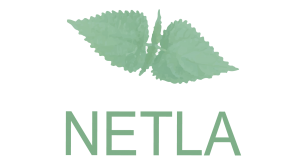Kennsla og stuðningur í íslenskum háskólum - Reynsla innflytjenda
##doi.readerDisplayName##:
https://doi.org/10.24270/netla.2018.5Lykilorð:
Kennsla, stuðningur, áskoranir, innflytjendur, íslenskir háskólarÚtdráttur
Í kjölfar aukinna fólksf lutninga síðustu áratugi hefur innf lytjendum fjölgað í háskólum á Íslandi. Þessi grein er byggð á niðurstöðum rannsóknarverkefnisins Væntingar og tækifæri innf lytjenda a? I?slandi til ha?sko?lamenntunar og áskoranir henni tengdar (2016-2018) sem styrkt er af Ranni?s. Meginmarkmið rannsóknarverkefnisins er að öðlast skilning á upplifunum, reynslu, áskorunum og stuðningi við innf lytjendur í háskólanámi hérlendis. Í þessari grein eru kynntar helstu niðurstöður úr eigindlegri rannsókn með innf lytjendum sem eru núverandi og fyrrverandi háskólanemar á Íslandi. Gagna var af lað í rýnihópaviðtölum og einstaklingsviðtölum við alls 41 nemanda í þrem háskólum á Íslandi. Markmið rannsóknarinnar sem greinin fjallar um er að öðlast skilning á reynslu og upplifun innf lytjenda af kennsluaðferðum, áskorunum og stuðningi í þremur stærstu háskólunum á Íslandi, Háskóla Íslands, Háskólanum í Reykjavík og Háskólanum á Akureyri. Niðurstöðurnar benda til þess að f lestir þátttakendur upplifi að kennsluaðferðir í háskólunum séu nútímalegar. Þeir nefna hagnýtar kennsluaðferðir, svo sem umræðutíma og hópavinnu, og að byggt sé á þekkingu þeirra og reynslu. Skoðanir á þessum kennsluaðferðum eru þó mismunandi. Sumir þátttakendur telja hópavinnu vera góða, en aðrir upplifa hana sem tímasóun. Sumir sækjast eftir akademísku námi, á meðan aðrir vilja frekar læra eitthvað hagnýtt, sem þeir geti notað í framtíðarvinnu. Þá telja þátttakendur að jafnræði ríki milli nemenda og kennara í háskólunum, en það hafa þeir ekki alltaf upplifað í heimalöndum sínum. Niðurstöðurnar sýna einnig að nemendurnir eru langf lestir jákvæðir gagnvart kennslu og stuðningi í íslenskum háskólum en þeir glíma við ýmiss konar áskoranir. Fram kemur að þeir leita eftir mismunandi stuðningi, bæði formlegum og óformlegum, svo sem betra aðgengi að formlegum upplýsingum fyrir innf lytjendur á innra neti og á vefsíðum háskólanna. Óformlegur stuðningur, svo sem frá íslenskum samnemendum, t.d. við nemendur sem hafa lítið tengslanet hér á landi, virðist heldur ekki mikill. Þátttakendur glíma einnig við ýmiss konar vandamál, einkum tungumálaerfiðleika, en einnig samskiptavandamál og skort á upplýsingum. Þátttakendur frá löndum utan EES/ES glíma við erfiðleika tengda dvalarleyfi sem geta haft mikil áhrif á nám og líðan. Þessi rannsókn getur nýst háskólum við að bregðast við aukinni fjölbreytni meðal háskólanema.##plugins.themes.default.displayStats.downloads##
##plugins.themes.default.displayStats.noStats##

